Drug treatment centers in Mexico offer a diverse array of services, encompassing various models, service providers, and treatment program costs.
Types of drug treatment centers
These centers are categorized into professional models, mutual aid-based centers, religious models, Alcoholics Anonymous groups, and mixed models. Below is a concise overview of these models:
Mutual aid models
Mutual aid models are established and operated by individuals who, having conquered their own addictions, come together to assist others through their experiences and, at times, through addiction counseling—a fundamental certification to support those seeking recovery. While numerous Drug treatment centers in Mexico operate under this model, unfortunately, many do so without regulatory oversight. Consequently, their treatment programs are not vetted for effectiveness, occasionally breaching human rights and fundamental rights of individuals seeking medical care or hospitalization. Consequently, recovery outcomes can be suboptimal, with a high incidence of relapse.
Religious models
Religious models, as suggested by their name, typically emphasize spiritual growth and adherence to Judeo-Christian doctrine. Some incorporate basic medical services, particularly for detoxification, though psychological support tends to be limited, focusing more on religious practices and services.
Drug treatment centers based on the Alcoholics Anonymous Program
Drug treatment centers in Mexico based on the Alcoholics Anonymous Program are affiliated with Alcoholics Anonymous and Narcotics Anonymous groups, operated by volunteers who engage in various roles within the treatment center, such as kitchen duties, admissions, cleaning, and laundry. They also lead therapy sessions, which consist of Alcoholics Anonymous meetings throughout the day and sponsorship sessions—counseling based on personal recovery through the Twelve Steps Program, supported by Alcoholics/Narcotics Anonymous literature. While effective, the success of the Twelve Steps Program can be influenced by the experience and recovery level of the volunteers, impacting recovery rates.
Mixed models
Mixed models integrate the Twelve Steps Program of Alcoholics Anonymous with professional treatment elements, often achieving higher effectiveness compared to other models listed above. Nevertheless, there exists a broad spectrum within this category—from very basic centers with limited components and professional staff (e.g., employing only one psychologist for up to 120 people, with a doctor visiting only one day per week) to those adhering to regulations and recognized by health authorities.
Professional models
Professional models feature treatment programs grounded in evidence-based methodologies and medicine. Their clinical interventions and program activities are scientifically researched to validate expected and measurable outcomes. These centers employ specialized professionals across various domains impacted by addiction, including detoxification specialists, nurses, psychiatrists, psychologists specializing in cognitive-behavioral, dialectical behavioral, systemic therapies, grief, and relapse prevention.
Service providers may include civil associations, non-profit organizations, or anonymous society companies. Generally, professional models operate as anonymous society companies, managing drug treatment centers privately. Models based on Alcoholics Anonymous, religious models, mixed models, and some professional models are typically civil associations or non-profit organizations.
Key components of drug treatment centers in Mexico include individual therapy, family therapy, group therapy, pharmacotherapy, and other interventions tailored to address each individual’s specific needs, facilitating a comprehensive approach to addiction.
The overarching mission of drug treatment centers is to foster responsible citizenship and strengthen familial bonds, underscoring the critical role of family involvement in swift recovery and emotional regulation, enabling individuals to reclaim their lives promptly.
Select the best treatment center
When selecting a drug treatment center in Mexico, considerations should include recognition by the National Commission on Mental Health and Addictions, operational clearance by COFEPRIS, compliance with local health regulations (COFEPRIS), possession of a CLUNI (Unique Population Registration Key), Civil Protection measures, and other pertinent standards. If feasible, visitors should request access to clinic facilities to assess conditions, meet with responsible personnel and principal medical professionals, and engage in open dialogue with the admitted family member.
OCEÁNICA is a distinguished private treatment center with 31 years of experience in alcohol and drug addiction treatment. Emphasizing a professional model, OCEÁNICA boasts a robust multidisciplinary team comprising addiction specialists, round-the-clock medical and nursing staff, psychiatrists, nutritionists, addiction-specialized psychologists, family support, relapse prevention strategies, and additional well-being facilitators such as yoga, mindfulness, conscious breathing, and physical conditioning. Programs range from short-term to intensive residential stays spanning 28-35-45 days, all inclusive of a 5-day family outpatient program and a 6-month post-treatment support plan for relapse prevention. OCEÁNICA holds recognition from CONASAMA (National Commission on Mental Health and Addictions) and adheres to COFEPRIS regulations, Civil Protection guidelines, and human rights protocols.
Nestled in the serene beaches of Mazatlán, Sinaloa, OCEÁNICA offers outstanding lodging services, providing a tranquil environment conducive to recovery. With over 8,500 graduates and 15 families treated, OCEÁNICA stands as a beacon in Latin America for addiction treatment. In our admissions department, our psychologists are dedicated to addressing all inquiries confidentially.
Connect with OCEÁNICA’s professionals; informed action is paramount. Addiction is a progressive illness, and prompt intervention mitigates physical and environmental repercussions, fostering smoother recovery and treatment resistance reduction.
Initiate recovery by seeking assistance promptly. Delay no more.
“Seeking help is the ultimate act of love.”






